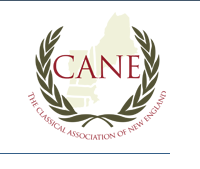Publication Ethics Statement
Contents
- Authorship and Contribution
- Complaints and Appeals
- Research Misconduct
- Conflicts of Interest
- Ethical Oversight
- Intellectual Property
- Options for Post-Publication Discussions
- Corrections and Retractions
Authorship and Contribution
All authors must have significantly contributed to research and/or writing of the submission and are legally responsible for the submission. Authors are responsible for manuscript correction and proofreading pre-submission and handling revisions of revised submissions. Authors take collective responsibility for determining who is an author and the other in which names appear. Authors are encouraged to have a list of acknowledgements for their work to include individuals who have contributed to the submission, but do not meet the full criteria for authorship.
Complaints and Appeals
Complaints against the Journal, its staff, editorial board, or publisher should be relayed to the Editor, aseider@holycross.edu. If the Editor is the subject of the complaint, it should be relayed to the president of the Classical Association of New England, at president@caneweb.org
Complaints related to publication ethics should be relayed to the Editor, and the Editor will follow the procedures laid out by the Committee on Publication Ethics (https://doi.org/10.24318/cope.2019.2.26). Especially complex cases may be submitted to COPE directly for guidance.
The Journal aims to deal with complaints in a timely manner, and the editorial board will periodically update the sender of the complaint.
Appeals should be relayed to the Editor. If found to be valid, the Journal’s editorial board will review the appeal. After this review, a new editorial decision will be made based on the results of the review.
Research Misconduct
New England Classical Journal takes allegations of misconduct seriously, for both pre-publication and post-publication. The Journal may receive these concerns directly or indirectly, as well as anonymously or non-anonymously. After a timely investigation, any publication found to contain instances of willful misconduct will be retracted and a retraction statement will be issued.
Conflicts of Interest
Prior to submission, authors should declare any potential conflict of interest that may exert influence on writing by emailing the Editor, aseider@holy.cross.edu. These conflicts can be financial, non-financial, professional, contractual, or personal in nature, and should be declared as soon as possible.
Ethical Oversight
Authors are expected to follow their institutional policies on research ethics.
Intellectual Property
Authors retain all intellectual copyright over their submissions. Per CC BY-NC 4.0, content is able to be freely adapted, but proper credit must be given to the author and work cannot be used for commercial purposes.
Options for Post-Publication Discussions
The Journal accepts all forms of post-publication discussions through letters to the Editor. These can be general comments, questions, or formal complaints or requests for appeals. Post-publication, articles can still be corrected, revised, or retracted by the editorial board.
Corrections and Retractions
The Journal follows the guidelines set by the Committee on Publication Ethics (https://doi.org/10.24318/cope.2019.1.4) on corrections and retractions.

